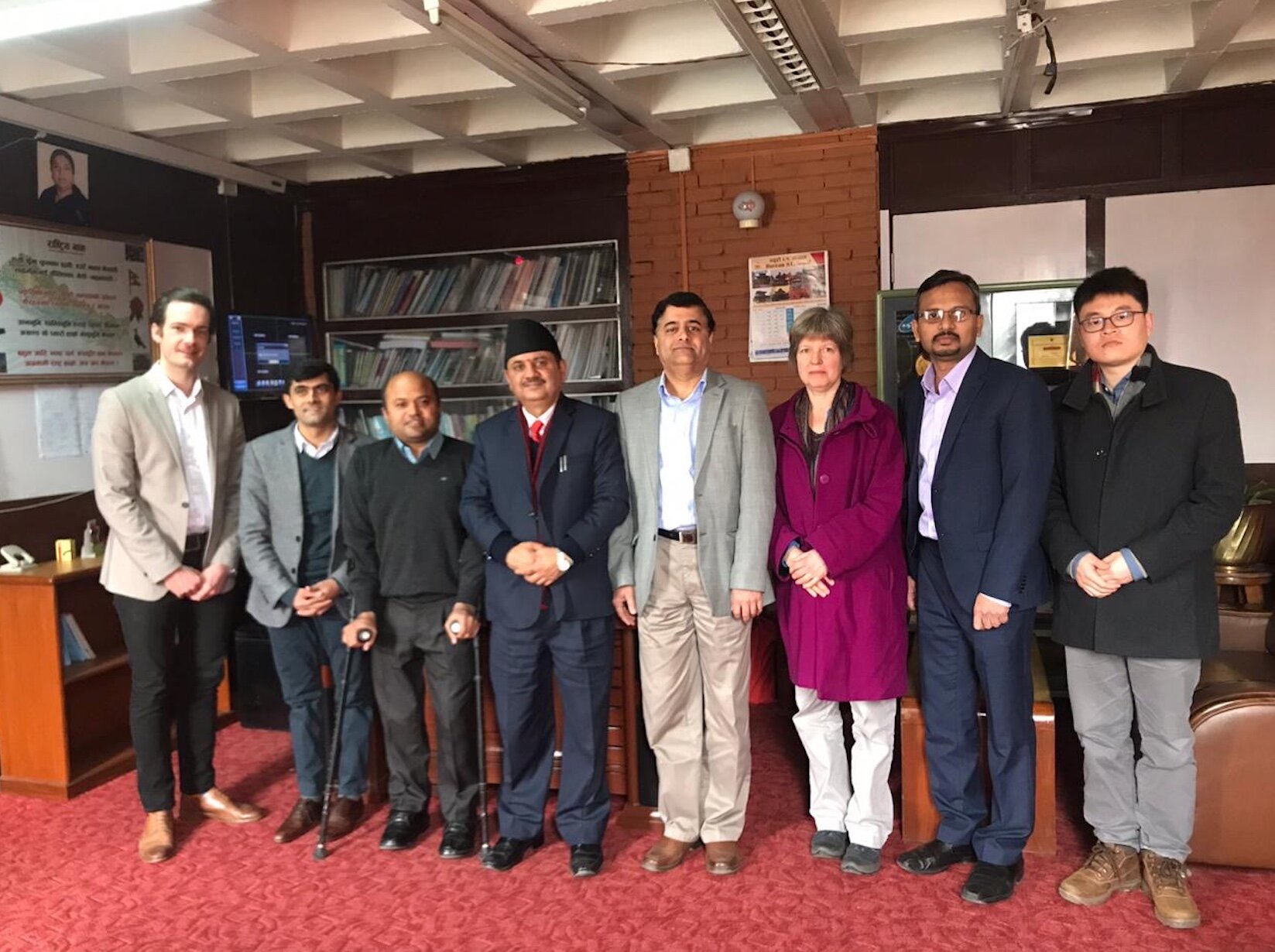Tele-rehab comes to Nepal - March 2020
Three trustees of GR are part of a Leeds University project working with a skilled rehabilitation team in Nepal to explore the use of Tele-rehabilitation in that mountainous country where travel is a huge challenge. A group from Leeds visited the Spinal Injury Rehabilitation Centre (SIRC), the only dedicated spinal injury rehab centre in the country, to help them reach the very many in the Nepalese countryside without any access to rehabilitation services.
Nepal is known to many, particularly trekkers, for its beauty and its remoteness. But this poses many problems for those with new or major life-changing disabilities. The road networks are poor, the cost to travel to the Centre (SIRC) prohibitive representing many days’ work, and possibly more that the cost of the consultation. There are rarely rehabilitation professionals available to advise and provide support; the person with a condition such as spinal cord injury will hence have a short life expectancy. SIRC does provide outreach services to some patients but being a NGO, its resources are limited.
Low income countries have a heavy burden of road traffic accidents (RTAs). In the last year in Nepal (population of 25 million) there were 13000 RTAs with 2736 deaths and 10,731 seriously injured. Those who survived often have spinal cord injuries or brain injury may have many complications. There were numerous musculo-skeletal injuries leading to chronic pain and poor function, difficulties with walking and much loss of the ability to work. Much could be improved with specialist rehabilitation care but only few have access.
The Leeds team knew of these problems. They knew, too, that Tele-medicine might have something to offer. But one to one consultations are not the solution to such a great problem where, in Nepal, SIRC is one of very few centres providing multidisciplinary specialist rehabilitation for the entire country and is able to respond to complex rehabilitation needs.
GR trustees have successfully trained clinicians in Madagascar for a decade leading to impressive local skills. Ram, from the SCI team in Sheffield, has led the development in SCI rehabilitation in Madagascar. Together with University of Leeds which has an enormous range of disciplines in rehabilitation and academic expertise, GR was well prepared to take up this challenge.
The TERN group was born; they came up with a novel cascading tele-rehabilitation idea which won a research grant from Research England (Global Challenges Research Fund) for undertaking a feasibility project on this.
A research team comprising of Miss Sophia Makower (physiotherapist), Dr Matthew Allsop (Leeds Institute of Health Sciences), Dr Wei Meng (Electrical and Electronic Engineering) and Dr Ram Hariharan (Consultant in Spinal Injuries Sheffield) and Dr Manoj Sivan travelled to Nepal in Jan 2020 to set up the project. They worked with the SIRC multidisciplinary team visiting some of their patients in their homes. They set up the teleconference system (thanks to the engineers in the team). The tele-rehabilitation model of care involves a social worker visiting patients living in remote locations and linking to the MDT team in SIRC using a mobile phone videoconference technology. The SIRC clinicians provide interventions remotely facilitated by the social worker. Patients with long-term disabilities and their families learnt better management of daily activities, bladder, bowel and skin care and how to get around better.
The Nepal Ministry of Health were very interested and set up a meeting with our team. They will be actively involved in the further development of this novel technology and developing a country appropriate solution.
The system is now running, is unique and we are hoping to refine, develop and extend it, not only in Nepal but widely.


